Enjoying the Vuelta? Like last year almost all of the best Spaniards in the race are over 30. Last year Spain finished first in the UCI rankings by nation thanks to Alberto Contador, Alejandro Valverde and Joaquim Rodriguez only the combined age of this trio is more than 100 years. Some said there are no replacements so this site looked at the next generation of riders coming through to pick some names for the future. How have they done this year?
As well as riders tipped a year ago, a look at some new names too.
Mikel Landa was tipped as the best climber and struck the jackpot this year, first with results that included a stage in the Tour of the Basque Country, two second places in the Giro del Trentino and then those two mountain stage wins in the Giro on the way to third place overall and second with a contract offer from Team Sky. His Giro was so good it generated “out of nowhere” quotes, presumably from people who don’t follow cycling closely because more than being touted as Spain’s next big thing on this site he was winning summit finishes in 2014 and had long been tipped for success, Astana won the bidding war when Euskaltel quit the sport at the end of 2013. Still he has exceeded expectations and the question is whether he’s a mountain specialist or if he can make it into a grand tour contender. Third place in the Giro was better than anyone imagined but he was poor in the time trial and the field was not deep, it’s hard to imagine him repeating it at the Tour de France. The fear is that in joining Team Sky he’ll have to slot into a support role as Mikel Nieve has done because even in the 2016 Vuelta there will be the likes of Froome, Roche, König and more wanting to lead the team.
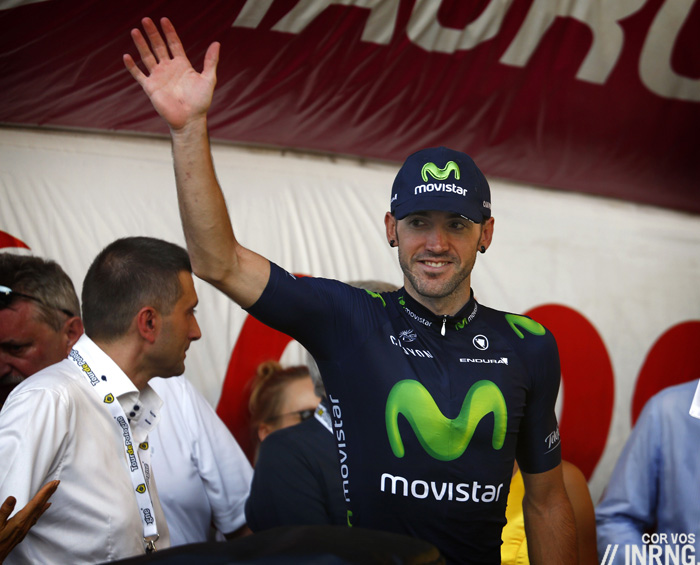
Ion Izagirre was tipped as the stage racer and 2015 has worked out well for him thanks to a win in the Tour of Poland, seemingly his preferred race. But it wasn’t a crushing performance. He’s been third in the Tour of the Basque Country this year, the stage racer’s stage race but going from one week to three seems a lot to ask. A similar story with Jesus Herrada, he’s had a solid season but has yet to look like the next Spaniard to follow Alejandro Valverde’s Parisian podium. Rafael Valls won on the Jebel El Akhdar in Oman, a summit finish so steep and tough that there’s no luck involved but apart from this flash he’s looked solid with top-10s in Paris-Nice and the Tour of Catalunya.
New to the list is Marc Soler, a neo-pro who has just won the Tour de l’Avenir. He had a good season as amateur in 2014 before turning pro. Whether a World Tour neo-pro should have ridden is another topic given the extra training, support and depth of racing he’s enjoyed this year but he came and conquered. The tall Catalan has had solid results elsewhere too and given his big build he seems to be the prototype stage racer. 2013 Tour de l’Avenir winner Ruben Fernandez hasn’t yet set the world alight, 2015 saw him finish third on Willunga Hill but the promise hasn’t carried through yet. Not even a neo-pro Jaime Rosón is a stagiaire with Caja Rural and you might have seen him in the USA Pro Challenge where he finished 12th. For more depth Spanish site arueda.com has a look at Spain’s team in the Tour de l’Avenir.
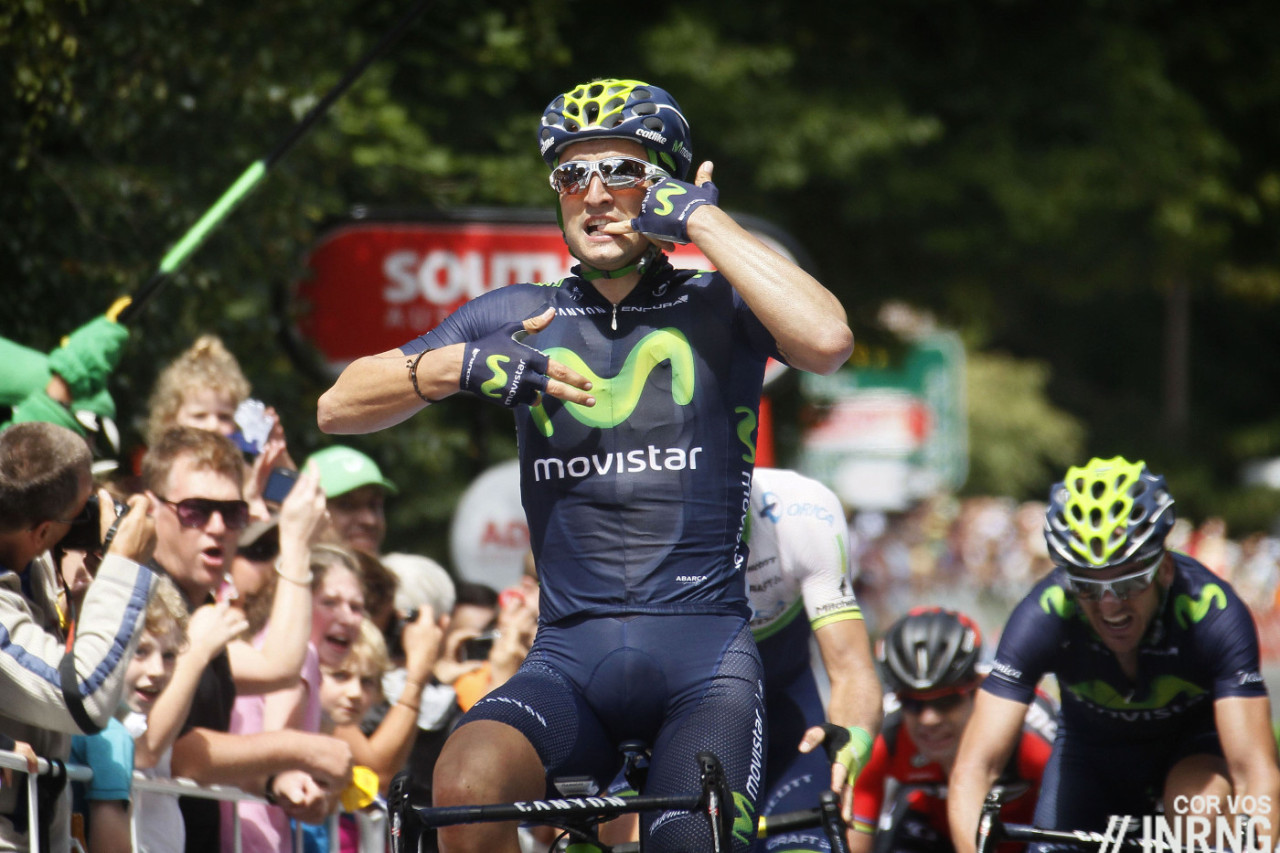
Why are so many Spaniards climbers and stage racers? A long topic but right from the junior ranks a race is not a race if it doesn’t have a climb and so there’s an element of selection bias. But there are one day specialists, look at Juan-José Lobato. Tipped a year ago he started 2015 very well after a stage win Down Under, podiums in the Dubai Tour and Almeria then a storming Vuelta a Andalucia where he took apart John Degenkolb in two sprints, he was even a pick for Milan-Sanremo but finished 85th and has only had three top-10 finishes since then. The same for Carlos Barbero, he’s a one day specialist, an Iberian Peter Sagan if you like but his team have limited invites and he’s finding this Vuelta tough against the World Tour opposition.
Caja Rural seems to have several energetic riders like, say, Pello Bilbao or Omar Fraile. Fraile’s been in the mountains jersey in the Vuelta and taken a stage of the Four Days of Dunkirk and won the Giro dell’Appennino too which proves his Vuelta success isn’t just a lucky break which is all good for the 25 year old but every country has a rider like this and by now we’re out of notable riders.
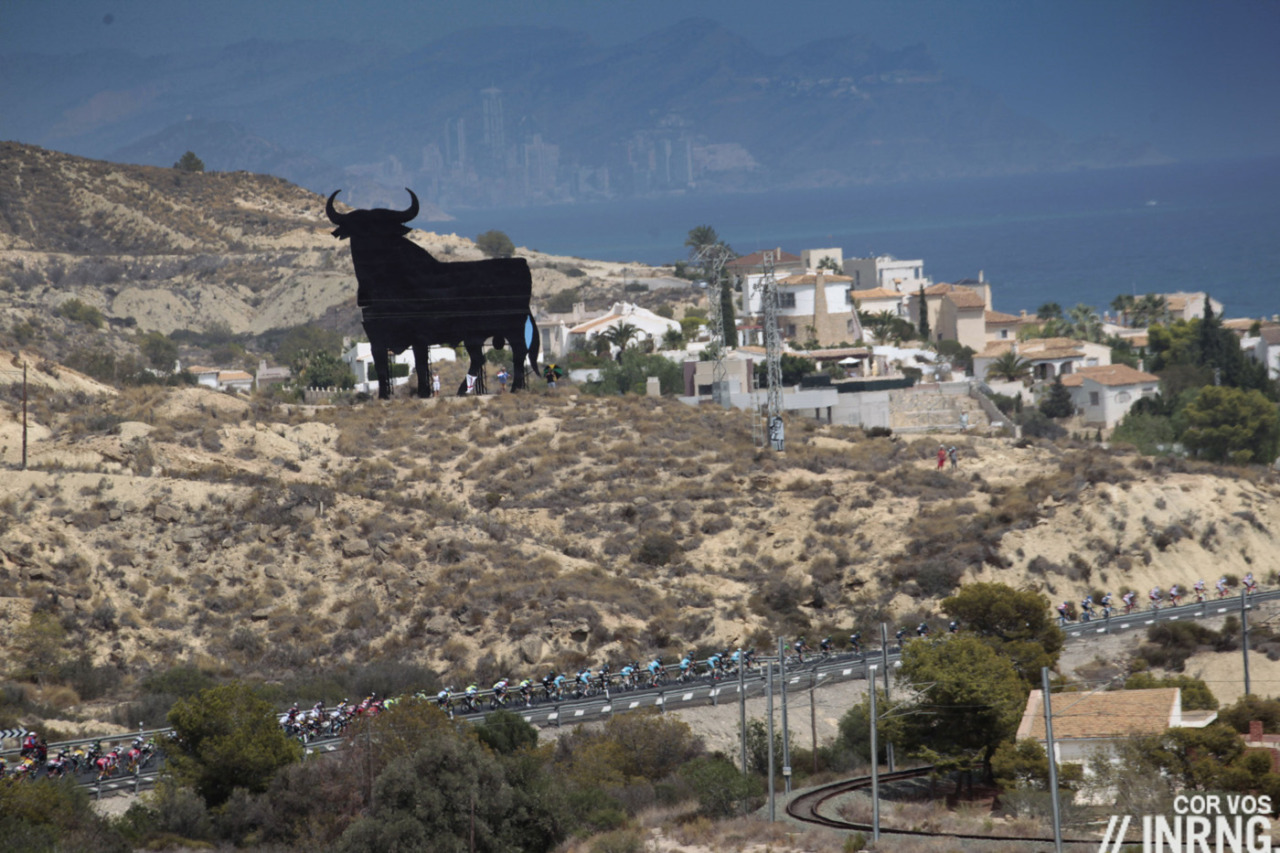
So far some individual names and some slow but sure progress. But what of the environment they operate in? As well as individuals there are structural issues facing Spanish cycling. There’s just one World Tour team and one Pro Conti team in Movistar and Caja Rural respectively, not much for what is still a major cycling nation. It used to be different and a decade ago there were five Spanish teams in the Pro Tour elite of 18 teams (Astana, Euskadi, Iles Baleares, Liberty Seguros, Saunier Duval) and three in the Continental level (Kaiku, Relax, Valencia). This period wasn’t a sustainable one to base off but it illustrates a significant reversal.
If there are few teams Spain is still the nation with the fourth largest number of race races on the pro calendar after France, Belgium and Italy and the second largest when measured by the number of race days even despite some races vanishing and former stage races being shrunk to one day events.
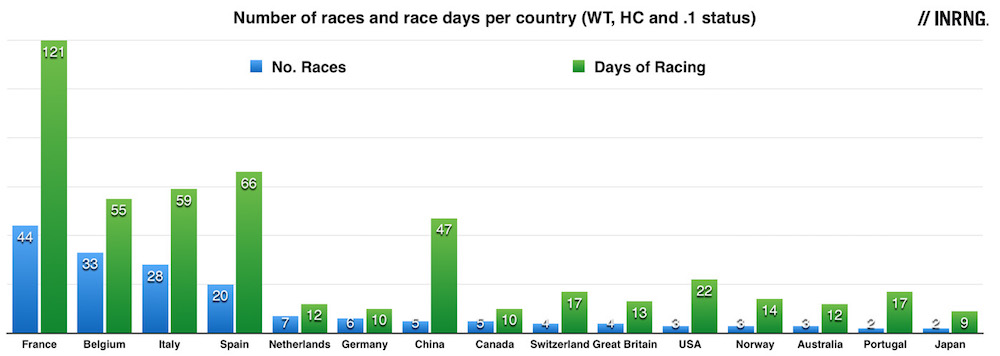
Spain is also a prodigious exporter of pro cyclists with 35 pros in the World Tour peloton, the fifth largest count after France, Italy, Belgium and the Netherlands. Of course Movistar has many riders but many World Tour teams have them. With Amets Txurruka moving to Orica-Greenedge for 2016 it looks like five teams (Cannondale-Garmin, Giant-Alpecin, Lotto-Soudal, Lotto-Jumbo and FDJ) will be without a house Spaniard. So lots of riders, lots of racing but few teams and riders have to leave Spain for employment opportunities. If even exists in the amateur ranks now with some Spaniards trekking across the Pyrenees to ride for French amateur teams; not long ago Romain Sicard and Loïc Chetout were going in the other direction. If it this all happened when the economy went south then there’s the hope it’ll prove cyclical in the other direction now Spain’s economy is growing but there seem to be few projects, even the ghost ship Alonso appears to have sunk.
Summary
Spain’s best riders are over 30. There was a gap last year and there’s still one now. As well as the absent Alberto Contador, scan the Vuelta and most of the Spaniards sitting in the top-100 overall are the wrong side of 30. Mikel Landa’s come on plenty this year but was the Giro a stand out result or part of long term plan? Beyond Landa there are a lot of riders coming through and they’re spreading out to many teams but for now there’s nobody new who looks set to stand on the Tour de France podium again but wait a year or two and we might find the likes of Soler and Fernandez making waves.
Behind all this is a lag, some teams have vanished quickly with the economic downturn but will new ones return now the Spanish economy is recovering? The calendar does provide a base to build on and the sport remains popular ensuring the talent will keep flowing but the same holds true for France which is still waiting for a rider capable of winning the home grand tour.
Thanks to Manuel Pérez Díaz and Fran Reyes for helping with some names to watch.

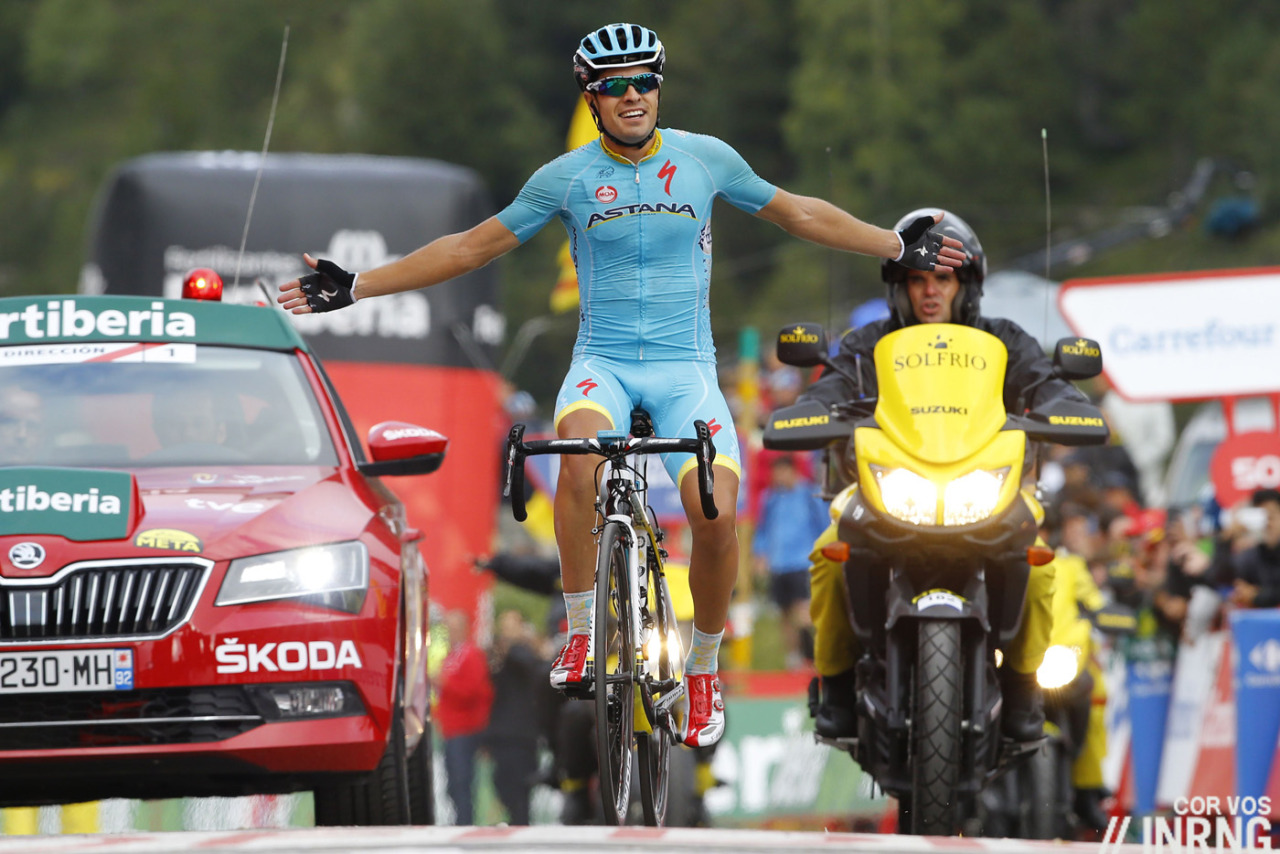
Nice one! It is scary, if you look at the situation in Spain. But I think in the other main cycling countries it isn’t that bad? It would be interesting to know, how long the Pro Conti-teams/Conti-teams/national teams can exist on average-do they come and go or do they have the chance to grow, get better raceprograms over time, to bring riders up the ranks? In Spain the riders also have to compete with a lot of riders coming from Slovenia, as far as I can remember-proof that no matter how bad it looks, there is always a place where it is worse. It is very worrying. Even for the very small teams there is so much money needed today to keep them racing and to adhere to the rules. I remember the win of Lluis Mas Bonet in Turkey this year and how the team was so happy: the other riders jumping off their bikes at the finish lines, hugging Mas – it was nice to watch, but you can also sense the huge pressure/relief behind that joy. It can’t be too easy for Caja Rural.
I came across this recently :
http://www.bbc.co.uk/sport/0/cycling/34023811
Unfortunately it is a list that Spain heads. A factor in the lack of teams / sponsorship ?
That list is inaccurate. It doesn’t include the stage win David Millar admitted he achieved while doping, and totally ignores the 2006 mass expulsion before the first stage of those allegedly implicated in Operation Puerto, while mentioning several “sanctions without tests”.
The last post is from me.
The list is ridiculous. It doesn’t explain what information is really given, and at any rate has more ommissions than holes in an Emmentaler cheese. It says more about the BBC than anything else.
Seems the US has some work to do. They have how many registered WT & Continental teams?
While having a piss poor racing calendar, we need to step up we certainly have the coin.
Thanks LANCE
Counting teams:
Liberty Seguros and Astana in 2006 were one and the same thing, so can’t be counted twice. The one became the other after Puerto.
AG2R’s house Spaniard – is it The Invisible Man? Zubeldia moving there from Trek in another Inrng scoop?
I miss Euskaltel, it was a sad day when they could no longer continue. I’d love to see a future for cycling where a team like Euskaltel could exist and thrive alongside a ‘Team Sky’ type structure – for me both bring so much to the sport.
really enjoy watching landa and am already getting night visions of him ferrying Froome up some mountains. as someone not a fan of team sky, i’ll have to resort to the “respect, but don’t care for…” trope.
Could not the signing of Landa enable Sky to potentially have three separate leaders for each GT though ?
With Brailsford reportedly commenting on Thomas’ future as a GT leader, this would enable them to have a very realistic tilt at Giro, TdF and Vuelta.
I know that, hitherto, Sky have been very TdF-focussed but there has been signs that their sights have been widened eg Porte’s ill-fated Giro attempt this year,
Maybe, maybe not.
Yes, they almost literally could have three leaders in each GT.
Sorry, I’m being facetious, but if you are a young rider and you want to ride for yourself, you’ve joined the wrong team – and they know that when they join, so can have no complaints.
You have to assume that Thomas will now be the second most favoured rider – due to nationality.
Landa, Konig, Poels, Nieve, Henao, Roche, Kennaugh, et al will be languishing in the train.
If one is given a chance in a GT, it’s unlikely to be the Giro, as they’ll be saved for the Tour and, therefore, it’ll be the Vuelta having had a hard Tour (unless Froome or Thomas decided to ride the Vuelta).
But that’s what happens when you take the money.
I’d say the young ones should leave – so all bar Roche and Nieve, who are probably earning a good wage having realised that they don’t have what it takes anyway.
Terrible move for Landa and Konig.
I think a good example of a very different move (if not opposite) that ended up paying off was Gilbert choosing for FDj in his early years so he could grow as a leader in a smaller team.
I hope for Mikel Landa, that I am wrong, but I think he makes the wrong move with Sky-if he ends there. I really hope, we don’t see another Betancur-situation.
Out of interest who are these three leaders in each GT? I can see Froome and Landa with the capability to actually win / podium at a GT. Thomas and Konig (more likely) have some potential, but that’s it. Everyone else is a bit of a long shot. Yes, they rarely ride as protected riders in GTs, but even in smaller stage races the Sky riders you listed don’t perform well enough to suggest that they merit the chance.
Hence: ‘I’m being facetious’.
Landa, Konig and Thomas could possibly be GT contenders elsewhere.
They and the other riders I mentioned could focus more on their own careers elsewhere – as the Yates brothers have done.
I think most of the riders you name (probably even Konig and Thomas) wouldn’t be GC contenders, anywhere, any team, and they know it. There simply aren’t many people capable of the feat.
People were probably saying the same of Sastre, not speak of Pereiro. And what about Hesjedal? Or Savoldelli? Or Vinokourov? Or Wiggins? Or Di Luca? And Cobo, Horner… Ok, we can discount some of them (maybe a couple, nothing more).
GT can be won by guys who aren’t among the top dogs podiuming every couple of years or so: yet, you can hope that someone who’s capable of doing a decent GC can grab his occasion (whereas if you don’t have such a rider, you won’t even be able to dream about that).
Besides, in my first paragraph I’ve been simply ignoring the fact that you look like you ignore that, in cycling, to be considered a GC contender generally means featuring in the top ten (probably) or in the top five (for sure) of some GT – not to speak of maybe winning shorter stage races. This is including more people than you appear to think.
Riders fight as for an objective on his own to stay in the 7th-8th place of GC or something like that, which means that – sadly it may be in tactical terms – teams, sponsors, riders, fans consider that a *relevant contest*. Which makes those riders GC contenders.
The chart above showing the no. of races and racing days is quite interesting–there are no middle eastern races, such as the Tours of Qatar, Oman, Dubai, shown despite these being the new generation of pro races. Also, China shows only five races, but a huge number of racing days, reflecting the sponsorship money behind those multi-day stage races that run across km after km of rural hinterlands for disinterested peasant farmers. Just like global rainfall patterns, the rain seems to fall in parts of the world that don’t need it, and the parts that do need it are going dry.
The Velon deal made me really laugh. It is really the worst they could do. But it fits- just like launching without having anything concrete to announce. On the one hand, I am happy, if the riders get more money (although I would be even more happy, if some races would make money), on the other hand, the F1-way is not the way to go, if you really want the sport to have a good foundation, be healthy and most of all: if you want the sport to matter in the life of the people doing and watching it. To be honest: If that race in Abu Dhabi is held or not will never matter to me. Never. What will matter, is that riders that race there, won’t race races I care about. And what will matter, is when the fans (who are the reason, why this is a profeassional sport and not an amateur-league) hopefully finally have enough of some team owners and teammanagers. I don’t buy anything at Amazon anymore, because I don’t want to support their philosophy towards their employees and I fear the day, when I don’t want to support professional cycling any longer. F1 has by now realised that their sport is too expensive and too far away from the people. Cycling has the same problem (if you have to do a 5 week altitude training to race for 4 or 6 weeks -and that isn’t only for team leaders-, something definitely is wrong): Professional cycling is way too expensive, but unlike F1 it has not the huge automobile industry behind it. I think by now the only way to go is not a salary cap (or not only), but also a budget cap to stop the ever higher team budgets and the moneydoping.
This is precisely why I’ve always been against Velon. The risk has always been that good riders end up racing Beijing-Shanghai instead of Paris-Roubaix.
They need to be stopped now, but in this world money always wins out.
Beijing-Shanghai, if it could be organised, would be an awesome race that would indeed merit more prestige than Paris-Roubaix. That’s the thing about traditions – old ones die, and new ones are created. Road cycling is not just for Europeans.
Of course it would. The parcours, the fanbase, the history – it all beats P-R into a cocked hat.
Road cycling is not just for Europeans, but they are the ones who are primarily interested.
Even if the people of China were allowed to do so (and that’s another point about what countries we want to see racing in – despotic states?), they wouldn’t be lining the streets.
Countries have their sports that they are interested in – and you can’t make them change their mind. Hence, the US have their sports, Southern Asia has cricket, Aus/NZ/SA have rugby/cricket, etc. – none of them show a massive interest in football, despite its hegemony elsewhere.
The reason the likes of Velon want to ‘globalise the sport’ is the money they get from the authorities of these countries, not the interest from the people of these countries.
Did you see the Tour of Beijing?
You can look forward to watching lots of inferior, but pleasingly non-European, races if cycling is chases the cash, and you can tell yourself that you’re being terribly liberal whilst enjoying the new Grand Tour of the Emirates.
Of course. Not just for Europeans. And Big Ben should be moved to Buenos Aires.
The point, which you all appear to be missing, is that races are made by parcours, riders, and history. Having good riders ride in non-traditional races simply builds up good history – as long as the parcours is interesting. There isn’t enough space on the calendar for all these races, so some will go, or get downgraded. You might be a fan of defunct races, so this is a bad thing for you, but they do get replaced by interesting ones. Or they get replaced by not so interesting ones which themselves become defunct, like the Tour of Beijing. Which is not the same as a putative monster three week Beijing-Shanghai race.
As for the liberality or not of cycling races, that’s the daftest argument I ever heard. Do any of you not drive, eat or wear clothes simply because all these things benefit the governments of illiberal countries? People in illiberal countries enjoy sport too you know. They may be fed a diet of sport in lieu of proper representation, but that doesn’t mean they don’t enjoy the sport.
I agree with J Evans that cycling will never be a mainstream sport in these countries, but that’s a poor reason not to hold a race and see what happens. There are a fair number of cycling fans in Malaysia, for example, who spend money on bikes and watch the Tour de Langkawi as far as they are able, and who also spend money on watching European races. This fan base did not exist prior to the race being organized. It’s an illiberal country, the race is a poor use of the country’s resources, but it’s fun, and more interesting than half the European races most of the time (except of course, when they left out the Genting Highlands climb this year…).
Yes, I avoid buying things from such nations, as much as is possible. And I wouldn’t hold sporting events there – they should be boycotted.
As for your ideas on where cycle races should be held, you’ll find little support because – for cycling reasons alone – your ideas are awful.
I suppose you know all about lack of support from a bunch of anonymous commenters and why that’s so incredibly important. But what were these cycling related reasons again?
I meant support from anyone who knows anything about cycling.
I’ve already given my reasons: parcours, fanbase, history.
China, to use one example, does not have the latter two and whilst it does have mountains, does it have the roads required on the steepest and highest mountains necessary for a grand tour? Also, my original example was Paris-Roubaix – how is China for pavé?
There simply is no good reason to sell out the sport – other than money.
You have given no good reasons – and your example of Malaysia isn’t it. Even with Genting, it’s not a fascinating parcours.
The races are largely in Europe because that’s where the interest is. I leave you with this old Japanese proverb to ponder, “If you flog a baboon because it is ugly, you will end up killing it.”
Presumably those races don’t show up because there’s one of them in each country, and the cut-off for the chart is 2 races?
Is this the same Juan-José Lobato who now leads Tour of Britain?
He is.